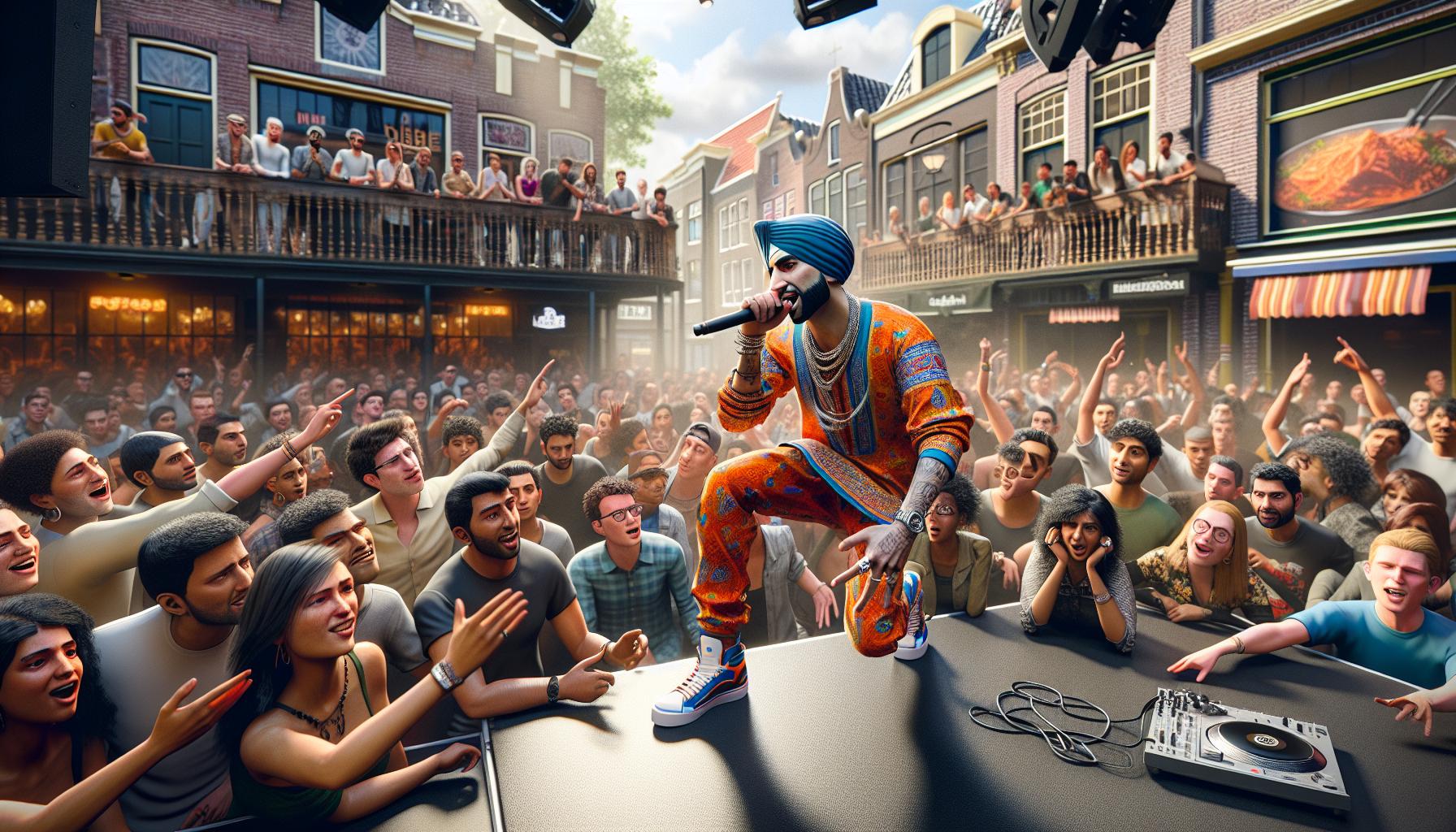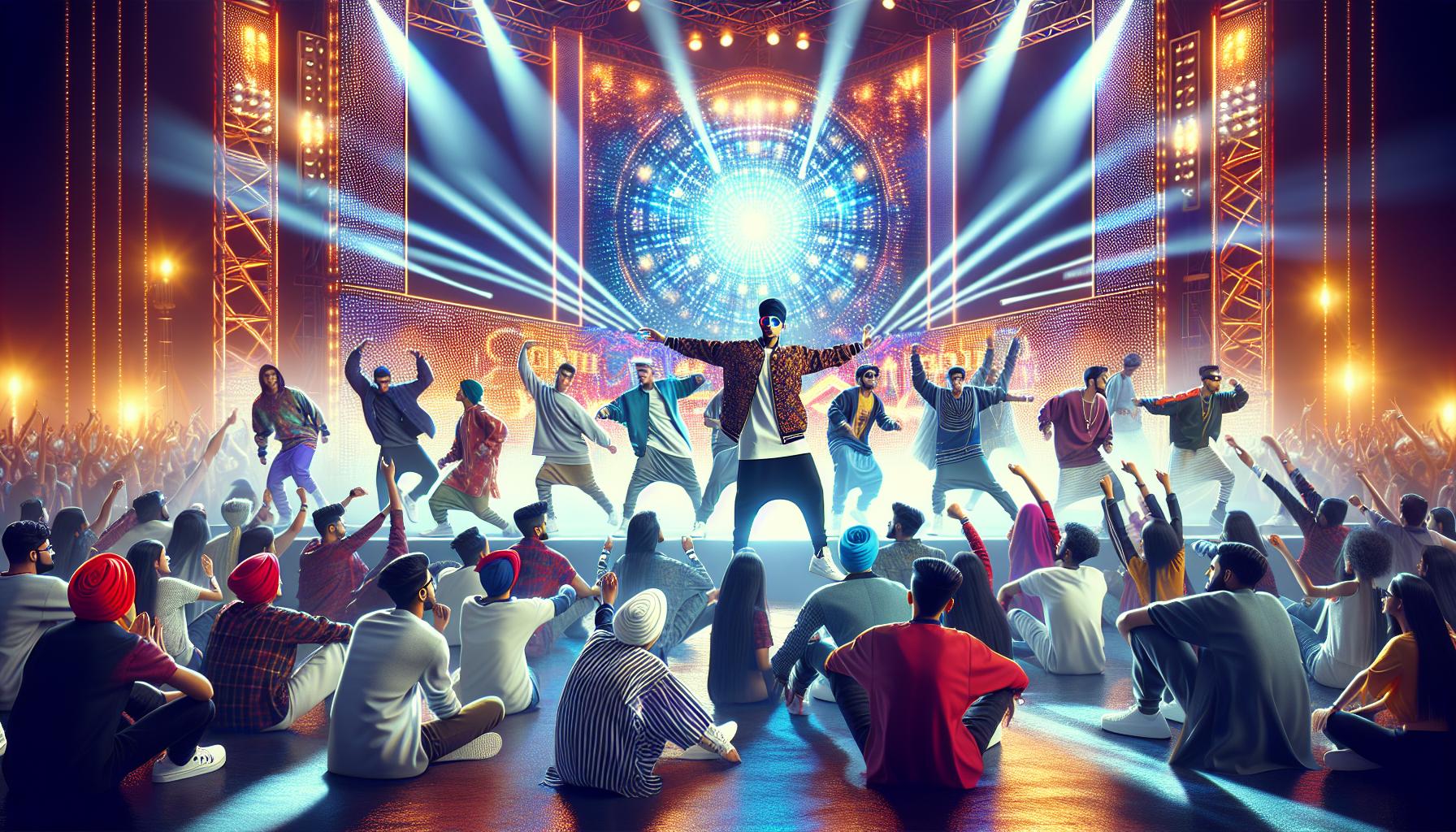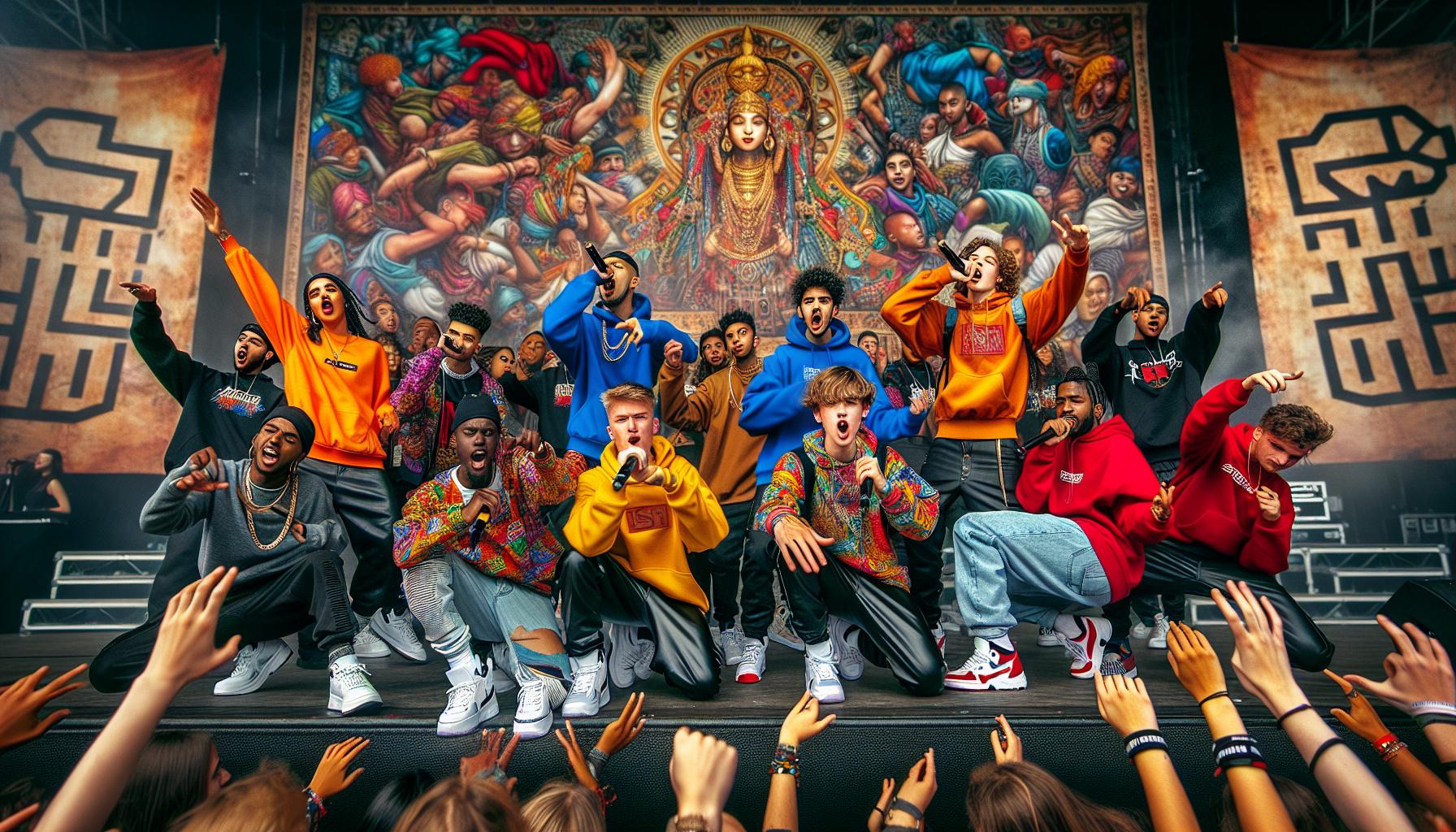Desi hip hop has become a powerful cultural force, blending South Asian roots with global beats to create a unique and impactful voice. In the Netherlands, this genre isn’t just about music—it’s evolving into a movement that challenges societal norms and promotes meaningful conversations. One of its unexpected yet significant roles has been amplifying the call for a casino-free culture, resonating with younger generations seeking alternatives to gambling-driven lifestyles.
As the vibrant rhythms of Desi hip hop echo through Dutch cities, artists are using their platforms to shed light on the social and economic impacts of gambling. Through their lyrics and storytelling, they’re not only entertaining but inspiring change, encouraging communities to rethink their values. This fusion of art and advocacy highlights how music can transcend boundaries, becoming a catalyst for cultural and social transformation in unexpected ways.
Understanding Desi Hip Hop Culture
Desi hip hop blends South Asian cultural elements with global hip hop traditions, creating a dynamic fusion of music and identity. It has emerged as more than entertainment, acting as a medium for storytelling, activism, and cultural preservation.
Origins And Global Influence
Desi hip hop originated in the early 2000s, drawing from the South Asian diaspora’s experiences in the US, UK, and Canada. Artists infused hip hop with regional languages, instruments like the tabla and dhol, and themes of migration, identity, and resistance. Its global reach expanded as creators like Bohemia and Divine introduced multilingual tracks, bridging diverse audiences. Platforms such as the BBC Asian Network have amplified its scope, connecting artists and listeners worldwide. Desi hip hop continues influencing mainstream genres by integrating traditional South Asian sounds within universal beats and rhythms.
The Rise Of Desi Hip Hop In The Netherlands
Desi hip hop’s growth in the Netherlands reflects its adaptability within multicultural societies. Local artists incorporate Dutch and South Asian cultural references, addressing issues like identity, discrimination, and societal norms. Events like “Mumbai-Delhi Nights” contribute to its visibility while fostering cultural dialogue. Artists in the Netherlands also leverage the genre to encourage conversations against gambling, furthering positive social narratives. Resources like Red Bull Music showcase its impact through articles and events, solidifying its presence in European music culture.
Casino-Free Culture: A Growing Movement

Casino-free culture promotes awareness of the negative social and economic effects of gambling while fostering environments that support healthier choices. In the Netherlands, this movement aligns with grassroots initiatives and artistic expressions like Desi hip hop, which inspires community-driven discussions on cultural and social values.
Challenges Of Gambling Dependency
Gambling dependency exacerbates financial instability, mental health issues, and social isolation. According to WHO data, problem gambling affects around 1-4% of adults worldwide, with consequences extending to families and communities. In the Netherlands, various programs work to mitigate these effects, but prevention remains crucial.
Artists within the Desi hip hop scene use storytelling to highlight the struggles associated with gambling, such as debt and addiction, pushing for cultural shifts away from these behaviors. These cultural narratives help audiences recognize and navigate the complexities of gambling dependency. For more information on global gambling harm prevention, resources like the Responsible Gambling Council provide detailed insights.
How Hip Hop Connects To A Casino-Free Lifestyle
Hip hop, including Desi hip hop, serves as a platform for addressing behavioral and social issues like online casino zonder cruks gambling. By embedding anti-gambling messages in lyrics, artists engage younger audiences with relatable and impactful storytelling.
Desi hip hop events celebrate community, creativity, and shared values, promoting entertainment free from casino-related influences. For instance, Red Bull Music highlights how music fosters cultural dialogues, which align with initiatives advocating for responsible and casino-free entertainment choices. This approach actively contributes to reshaping societal norms, making hip hop a driving force in promoting a healthier cultural paradigm.
The Role Of Desi Hip Hop In Promoting Change

Desi hip hop in the Netherlands plays a significant role in addressing cultural and social issues. It elevates community voices by combining traditional South Asian elements with global hip hop influences, fostering discussions on identity and societal challenges.
Artists Driving The Movement
Desi hip hop artists in the Netherlands actively leverage music as a platform for engaging with social issues. Figures like Imran Khan and F1rstman bring visibility to the South Asian diaspora by blending contemporary sounds with cultural identity. Through their work, they highlight the struggles and aspirations of immigrant communities.
Many artists integrate messages about cultural preservation and community well-being into their performances. This resonates with young audiences, connecting them to their heritage while promoting values that challenge concerns like gambling culture. Initiatives supported by platforms such as Red Bull Music also enhance global recognition of these creatives, amplifying their ability to spark change.
Lyrics And Messaging: Spreading Awareness
Lyrics in Desi hip hop serve as a potent vehicle for raising awareness about societal matters, especially gambling-related issues. Tracks often narrate personal or community hardships caused by gambling addiction, presenting relatable stories that advocate for healthier choices.
Artists use regional languages, weaving cultural traditions with modern beats to make messages accessible to diverse listeners. Anti-gambling themes address financial struggles and mental health risks associated with dependency. Campaigns through collaborations and partnerships, such as with Hip Hop Huis, further amplify this outreach, ensuring that social awareness reaches broader demographics in the Netherlands.
Community Impact And Cultural Significance

Desi Hip Hop in the Netherlands serves as a cultural bridge, connecting South Asian communities while addressing societal issues. Its role in amplifying themes of identity, migration, and conscious living highlights its transformative power.
Inspiring The Youth
Desi Hip Hop resonates strongly with young audiences in the Netherlands, particularly within the South Asian diaspora. Artists craft lyrics addressing challenges like cultural displacement, discrimination, and societal expectations, fostering relatability among listeners. Events like “Mumbai-Delhi Nights” and platforms such as Red Bull Music amplify these messages, providing youth with spaces to engage with their heritage through music.
Additionally, artists embed themes of resilience and purpose in their music, encouraging youths to embrace positive values. By tackling the impacts of gambling dependency in their narratives, they cultivate awareness about financial and mental well-being. Movements within Desi Hip Hop inspire a generation to lead more intentional lives, free from the cycles of detrimental behavior.
Encouraging Positive Social Change
Through lyrics and visuals, Desi Hip Hop artists highlight the consequences of gambling while promoting healthier cultural norms. By blending traditional South Asian music with modern hip hop, artists like Imran Khan and F1rstman elevate the relevance of community issues within broader society. Collaborations with organizations such as Hip Hop Huis expand the reach of these initiatives.
Beyond entertainment, the genre serves as a medium for addressing difficult topics such as financial instability and consumerism arising from a gambling-centric lifestyle. In the Netherlands’ multicultural landscape, this contribution fosters greater cultural dialogue and mutual understanding. The wider adoption of Desi Hip Hop’s values supports the transition to a society that prioritizes community well-being over exploitative practices, reflecting a compelling model of empowerment.
For more on hip-hop-driven social movements, platforms like Pitchfork provide insights into their global impact.
Conclusion
Desi hip hop has emerged as a dynamic force in the Netherlands, blending cultural heritage with modern activism. By addressing critical issues like gambling dependency and cultural identity, it’s reshaping societal norms and inspiring meaningful change.
Through its powerful storytelling and unique fusion of South Asian and global influences, this genre amplifies underrepresented voices while promoting healthier lifestyles. As it continues to grow, Desi hip hop stands as a testament to music’s ability to unite communities and spark essential conversations in today’s multicultural world.
